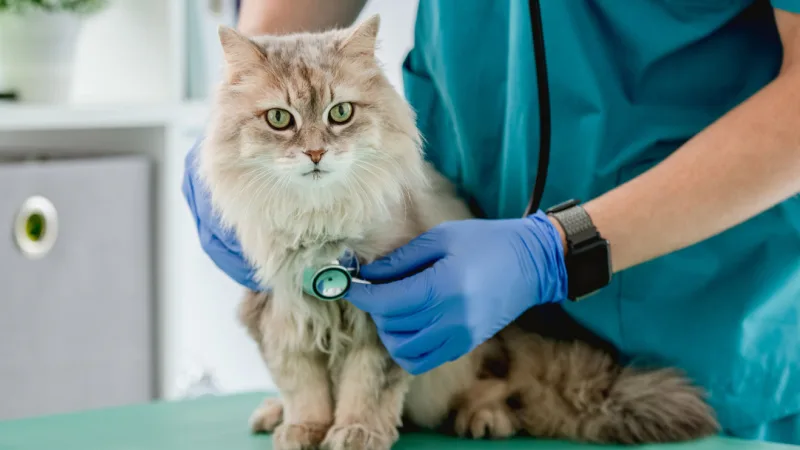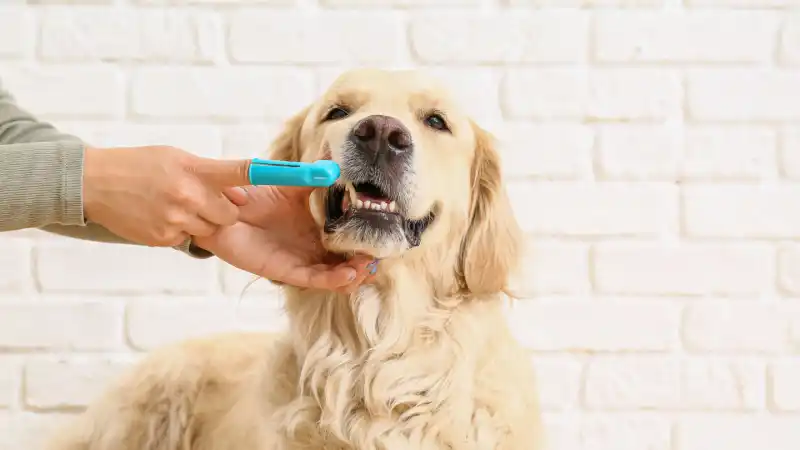AKC Pet Insurance’s Guide to Pet Wellness
Understanding wellness from a pet’s perspective is unique because human wellness is comparable to self-care, but pets can’t perform the same care tasks on their own.

Wellness. It’s the buzzword that’s been taking the world by storm. Often associated with self-care, modern-day wellness is about living your best, healthiest life.
Wellness is described as “the active pursuit of activities, choices and lifestyles that lead to a state of holistic health,” by the Global Wellness Institute. Ultimately, wellness means taking care of your physical, mental, and emotional health. It is a pro-active approach to healthy living, but it is not just important for humans. Pet wellness is vital for pets to live long, healthy, happy lives, and as responsible pet owners, that’s the largest goal in caring for our pets.
What Is Pet Wellness?
Understanding wellness from a pet’s perspective is different from a human’s perspective, because human wellness is comparable to self-care, but pets can’t perform the same care tasks humans can. However, like human wellness, pet wellness is a holistic view of your pet’s health, including preventative medical care, behavioral care, emotional care, and, of course, physical health.
What Are the Elements of Pet Wellness?
As mentioned above, pet wellness is a holistic view of your pet’s health that encompasses the physical, emotional, and behavioral wellness of your pet. But what does that mean? Physical health is the most obvious of the three, but rather than just taking your pet to the vet when they are sick, it means taking preventative health measures to keep them healthy before an issue arises. Emotional wellness is important for your pet because they can’t speak up when something is bothering them or when they are stressed, so monitoring their emotional state is important to them leading a happy life. Behavioral health may seem like the outlier, but it is an integral part of holistic wellness for your pet.
Physical Wellness in Pets
The primary part of pet wellness is their physical health. Caring for your pet’s physical health is probably already something you do on an annual basis, but how much preventative action do you take for your pet’s physical health?
For peak wellness in your cat or dog, start working on habits that keep them physically healthy. Routine wellness care with your vet allows them to monitor your pet’s health long term. It also allows your vet to offer guidance in advance of all your pet’s life stages from puppyhood well into their senior years.
Monitor Your Pet’s Weight
Much like humans, weight problems can create health issues and physical discomfort for your pet. Obesity can shorten life expectancy and has become a major issue in the U.S., with more than 56% of dogs labeled as obese. Additionally, diabetes diagnoses have increased 911% since 2011 for dogs and cats.
Obesity in pets can cause other health issues like joint degeneration, bladder stones, cancer, heart disease, and hypertension. Talk to your vet about how to get to and maintain an optimal weight for your pet. Once your pet loses those extra pounds, you’ll probably notice them having more energy and expressing more joy.
Take Your Pet to The Vet for Wellness Checkups
You may already take your pet to the vet for their vaccine boosters, but recent recommendations suggest more frequent visits. You may be asking yourself, “How often should I be taking my pet to the vet?”, and the answer varies based on your pet’s age and health.
If your pet is relatively healthy, you can take them in for a wellness exam annually, but pets under 1 year of age or older than 7 years of age should go in more frequently. These age recommendations can vary by breed, so talk to your vet; they will probably recommend bi-annual visits if your pet has not shown other health concerns.
Keep Your Pet Up to Date on Their Vaccines
Vaccines are the ultimate preventative health measures. They not only prevent your pet from contracting deadly diseases, but also avoid the costly treatments associated with them. Your pet’s lifestyle may dictate which vaccines are most important, but all pets should be kept on a vaccination schedule with their vet. Even pets that remain indoors may inadvertently be exposed to a disease from another pet or even a wild animal, and if they are unvaccinated, they are more likely to contract the disease and experience the symptoms more severely than their vaccinated counterparts.
Maintain Preventative Medications
Fleas, ticks, and heartworms are easily preventable with medication. Whether you go for a topical medication or a chewable one from your vet, preventing these parasites is paramount to your pet’s health. Heartworms are lethal to pets, and require expensive testing and treatment, so prevention is not only the cheapest option, but also the least likely to put your pet at risk.
Similarly, fleas are more than just pests for your pets. Yes, they make your pet itchy, but they also carry diseases and bacteria along with their bites. Flea bites may carry parasites like tapeworms or cause a dangerous reaction if your pet is allergic to them. Also, if your pet is bitten enough, especially when particularly young or old, they may become anemic from the blood loss.
Ticks carry similar dangers and unique diseases like Lyme Disease and Rocky Mountain Spotted Fever. Keep your pet healthy and comfortable by maintaining their flea, tick, and heartworm prevention.
Emotional Wellness in Pets
Your pet’s emotional state is a large factor in their quality of life. No one knows your pet better than you, and your relationship with them is an important part of their mental health. With more than 44% of millennials seeing their pets as starter children, and 95% of pet owners considering their pets part of the family, emotional wellness should be a top priority for most pet owners.
Your pet’s emotional well-being is easy to monitor, because studies have shown that pets experience emotions much like humans do, and can even express them in similar ways. You can help keep your pet happy by reducing their stress, keeping them physically active, and engaging them mentally with play and training.
Behavioral Wellness in Pets
Your pet’s behavior is an indicator of issues in their physical and emotional health, as well as a factor in their overall wellness. Pets can also get bored or anxious, and that can often lead to behavioral issues. A bored or scared pet may become destructive or lethargic depending on their personality and other factors.
If your usually housebroken pet begins to have accidents in the house, they may be experiencing emotional distress or a physical ailment that is causing the sudden behavioral change. Don’t dismiss sudden behavior issues as the result of a stubborn pet, since there may be underlying causes.
Pets need to be trained and held accountable for a happier life. As pack animals, knowing where they stand in the pecking order is an important part of their well-being. Plus, training provides mental stimulation and physical activity that will help prevent misbehavior.
Many breeds of dogs have traits ingrained in them to work or perform a task, so training them to master those natural genetic traits will prevent them from being expressed negatively or at an inappropriate time. The key to your pet’s behavioral wellness is knowing your pet and understanding their needs, so take some time to bond with them on a deeper level.
Wellness for your pets is about keeping them happy on more than just the physical level. Your vet can help with the process by providing their expertise, prescriptions as needed, and an additional set of eyes on their progress, so keep them involved in your pet’s health early and often.
AKC Pet Insurance (underwritten by Independence American Insurance Company) offers a wellness add-on that can help provide reimbursement for routine and preventive care expenses, like your pet’s flea and tick prevention.

Every Dog and Cat Deserves the Pet Insurance of Champions
Get prize-winning care for your pets.
CJ has always wanted to be a writer. She even threatened to drop out after her first day of kindergarten when they weren’t immediately going to teach her to read and write. Fortunately, she stayed in school, earned her degree in Creative Writing from Christopher Newport University, and now gets to live her best life with her husband, 3 Japanese Chins, and cat writing for AKC Pet Insurance.
READ MORE ARTICLES

